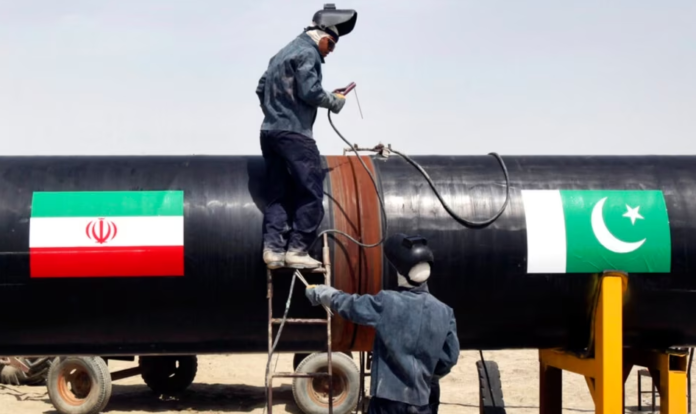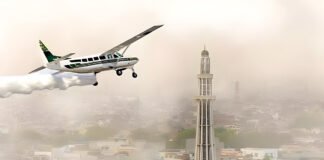Minister for Petroleum Musadik Malik stated that Pakistan is exploring ways to access Iranian gas but emphasized that Islamabad cannot afford to face international sanctions.
“Our position is very clear – we would like to have Iranian gas, but we want to come up with a mechanism by which we don’t face any sanctions,” Musadik said while addressing the Pakistan Energy Symposium in Islamabad on Wednesday.
“We are a poor country and cannot afford any sanctions.
“By the same token many countries have gotten waivers and extensions,” he said, citing the examples of Turkiye, Iraq, and Azerbaijan.
The Iran-Pakistan gas pipeline deal, signed in 2010, envisioned the supply of 750 million to one billion cubic feet per day of natural gas for 25 years from Iran’s South Pars gas field to Pakistan.
The pipeline was planned to cover over 1,900 kilometers (1,180 miles) – with 1,150 km within Iran and 781 km within Pakistan.
Tehran claims it has already invested $2 billion to construct the pipeline on its side of the border, making it ready for export.
However, Pakistan, in dire need of cheap gas due to its rapidly dwindling reserves, did not begin construction and shortly after the deal, stated the project was off the table, citing international sanctions on Iran as the reason.
He stated that Pakistan’s annual oil and gas imports, which range from $18-24 billion, are unsustainable for the country.
Malik mentioned that the government aims to boost domestic oil and gas production by offering exploration blocks for bidding. “The government is trying to attract global players in the exploration activities,” he said.
“Pakistan is open for business, and the authorities remain committed to completely digitizing the regulatory process in order to make it completely transparent,” he added.
Malik also emphasized Pakistan’s commitment to the TAPI gas pipeline project, stating:
“We are championing TAPI with the Turkmenistan government. We are trying to work around the country and have come up with various value propositions,” he said.
IMF loan talks: Pakistan set to hike property taxes in budget 2024-25
The minister noted that the operationalization of TAPI would provide Pakistan with a more affordable and steady supply of gas.
These comments come as Pakistan grapples with runaway inflation, which has shown only slight deceleration in recent months. The headline inflation figure reached a record high in May last year, prompting the central bank to raise the key interest rate further.
Pakistan is currently in discussions with the International Monetary Fund (IMF) for a 24th bailout program. However, analysts caution that this larger, longer-term facility will likely necessitate several growth-slowing measures.





